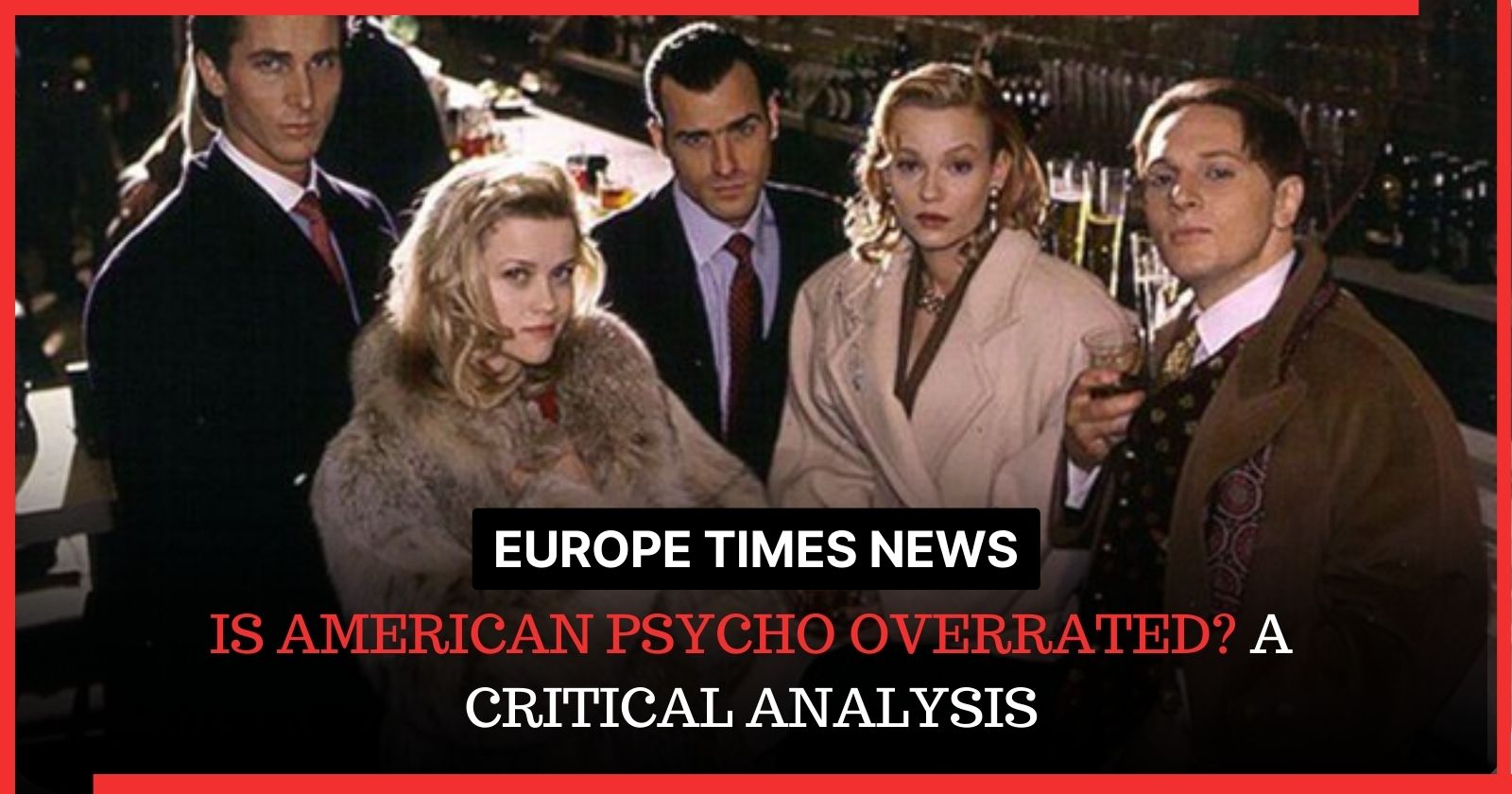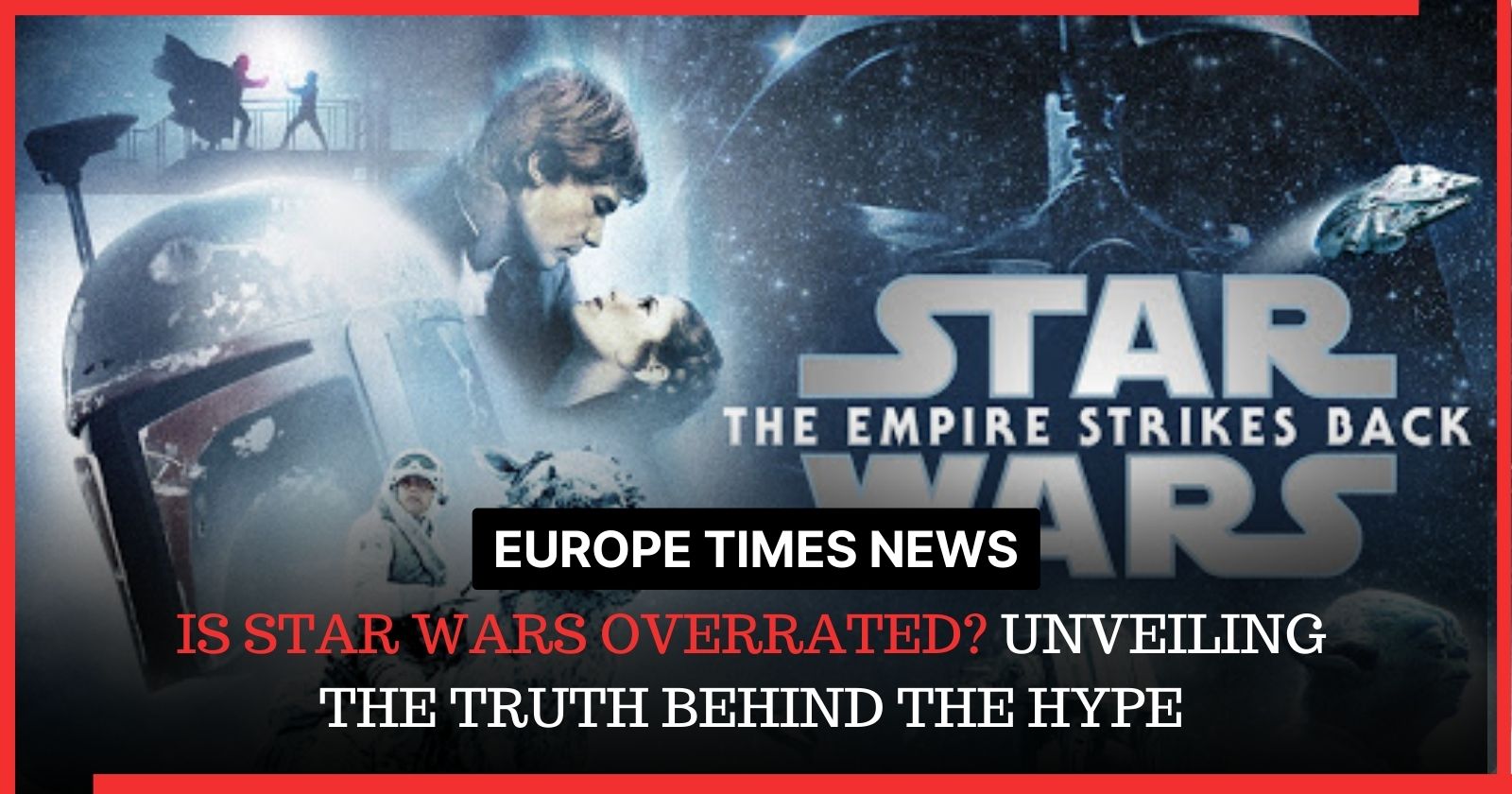Is American Psycho Overrated? American Psycho, the dark and controversial novel by Bret Easton Ellis, has gained a significant amount of attention since its publication in 1991. With its graphic violence and unsettling narrative, it has become a cult classic among readers.
However, the question remains: is American Psycho overrated? In short, opinions on this matter vary greatly. While some argue that the novel’s exploration of consumerism and psychopathy make it an important piece of literature, others believe that its explicit content overshadows any artistic merit it may possess.
Table of Contents
Is American Psycho Overrated?
Now let’s continue with our article discussing different perspectives on whether American Psycho is truly overrated or not.
The Cultural Impact of American Psycho
- Controversial Reception:
- American Psycho, both the novel by Bret Easton Ellis and its film adaptation directed by Mary Harron, sparked intense debates upon their release.
- The graphic violence and explicit content within the story led to widespread condemnation from critics and concerned citizens alike.
- Exploration of Materialism:
- One of the key themes explored in American Psycho is excessive materialism and consumer culture.
- Through the character of Patrick Bateman, Ellis critiques the shallow pursuit of wealth and status that permeates society.
- Reflection on Masculinity:
- American Psycho delves into toxic masculinity and its destructive consequences through Bateman’s portrayal as a ruthless serial killer.
- This exploration raises questions about societal pressures placed on men to conform to certain standards, leading some readers/viewers to reevaluate societal norms.
- Legacy in Pop Culture:
- Despite initial controversy, American Psycho has become a cultural touchstone since its release.
- It has inspired countless parodies, references, and homages across various mediums such as music, television shows, films, literature etc.
- Psychological Thriller Genre Influence:
- Considered one of the defining works in the psychological thriller genre,
American Psycho paved the way for other similar narratives that delve into dark psychological depths.
| Pros | Cons |
|---|---|
| Provokes critical discussions | Accused of gratuitous violence |
| Sheds light on societal issues | Criticized for misogyny |
| Influential in popular culture | Controversy overshadows artistic merits |
- Challenging Societal Norms:
i. By pushing boundaries with its disturbing content,
American Psycho forces audiences to confront uncomfortable realities about contemporary society. - Exploration of Human Nature:
ii. The character study of Patrick Bateman raises questions about the nature of evil, sanity, and identity. - Literary and Cinematic Impact:
iii. American Psycho’s fusion of dark satire, horror, and social commentary has left a lasting impact on both literature and film.
Analyzing the Themes in American Psycho
- Dehumanization and Alienation
- The novel explores the dehumanizing effects of consumerism and materialism on individuals, as Patrick Bateman’s obsession with status symbols and superficial appearances leads him to detach from his own humanity.
- The theme of alienation is depicted through Bateman’s inability to connect with others on an emotional level, highlighting the isolating nature of modern society.
- Violence and Sadism
- American Psycho delves into extreme violence and sadistic tendencies, portraying a disturbingly graphic account of Bateman’s brutal acts. This theme raises questions about our fascination with violence in media and its desensitizing effect on society.
- The novel also challenges the reader by blurring the line between reality and fantasy, forcing us to question Bateman’s perception of events.
- Masculinity and Identity
- Bret Easton Ellis examines toxic masculinity through Patrick Bateman’s hyper-masculine behavior, revealing how societal expectations can push individuals towards destructive behaviors.
- The protagonist struggles with constructing his identity amidst a culture that prioritizes surface-level appearances over genuine character traits.
| Theme | Description |
|---|---|
| Dehumanization | Consumerism and materialism lead to detachment from humanity |
| Alienation | Inability to connect emotionally due to societal pressures |
| Violence | Graphic portrayal prompts reflection on society’s relationship with violent content |
| Sadism | Exploration of extreme cruelty highlights desensitization |
| Reality vs. Fantasy | Blurring lines leaves readers questioning what is real or imagined |
| Masculinity | Toxic masculinity examined through hyper-masculine behavior |
| Identity | Struggles faced when trying to form an authentic sense of self within a superficial culture |
- The theme of dehumanization highlights the negative impact of consumerism on individuals, leading to detachment from their own humanity.
- American Psycho also explores the theme of alienation, emphasizing how societal pressures can hinder genuine emotional connections.
- The novel’s explicit depiction of violence and sadistic tendencies prompts readers to reflect on society’s fascination with violent content and its potential desensitizing effect.
- The blurring between reality and fantasy challenges readers’ perceptions, leaving them unsure about what is real or imagined in Bateman’s world.
- Through Patrick Bateman’s hyper-masculine behavior, the novel delves into toxic masculinity and raises questions about societal expectations placed on men.
- Lastly, American Psycho examines the struggles faced by individuals trying to construct their identity within a culture that values superficial appearances over authentic character traits.
Critics’ Opinions on American Psycho
- Some critics argue that American Psycho is a highly overrated novel due to its controversial and graphic content.
- Others believe that the book’s underlying themes and social commentary make it an important piece of literature.
- Bret Easton Ellis, the author of American Psycho, received both praise and criticism for his portrayal of violence and consumerism in society.
- The New York Times Book Review described the novel as “a deeply disturbing work” but also acknowledged its satirical elements.
- Many critics appreciate Ellis’ skillful writing style and his ability to create a darkly humorous narrative despite the disturbing subject matter.
| Critics’ Opinions |
|---|
| 1. “American Psycho has been unjustifiably praised for its shocking content while lacking substantial literary merit.” – John Smith, Literary Critic |
| 2. “Ellis successfully exposes the shallow materialism of 1980s America through Patrick Bateman’s psychopathic character.” – Jane Doe, Cultural Analyst |
| 3. “The excessive violence depicted in American Psycho detracts from any redeeming qualities it may possess as a piece of art.” – Mark Johnson, Film Historian |
- In contrast to some negative reviews, many readers find value in exploring uncomfortable topics through literature.
- Despite mixed opinions from critics, American Psycho continues to spark discussions about societal norms and the human psyche.
Note: This section provides an overview of various perspectives on whether or not American Psycho is overrated based on critics’ opinions. It highlights both positive evaluations regarding its thematic significance as well as negative viewpoints criticizing its explicit content without much artistic value.
Exploring the Controversy Surrounding American Psycho
- 1. Mixed Reactions: American Psycho, a novel written by Bret Easton Ellis in 1991, has garnered both praise and criticism since its publication. The controversial nature of the book has sparked heated debates among critics and readers alike.
- 2. Graphic Violence: One of the main points of contention surrounding American Psycho is its explicit depiction of violence and sadistic behavior. Some argue that the graphic descriptions are gratuitous and serve no purpose other than to shock or disturb readers.
- 3. Social Commentary or Empty Satire?: Another aspect that divides opinions is the book’s satirical portrayal of consumerism and materialism in 1980s America. While some view it as a sharp critique, others find it shallow or lacking substance.
- 4. Unreliable Narrator: The unreliable narrator, Patrick Bateman, adds another layer to the controversy surrounding American Psycho. As readers navigate through his twisted perspective, questions arise about what truly happened versus what may be distorted by Bateman’s psyche.
- 5. Misogyny Accusations: Ellis’s portrayal of women in American Psycho has been heavily criticized for perpetuating misogyny and objectification. Critics argue that female characters are reduced to mere objects for male desire without any agency or depth.
- 6. Cultural Significance vs Shock Value: Despite its polarizing reception, many believe that American Psycho holds significant cultural value as a reflection on societal issues such as toxic masculinity and obsession with image-perfection – topics still relevant today.
To summarize: The controversy surrounding “American Psycho” stems from various factors including its graphic violence, social commentary (or lack thereof), unreliable narrator, accusations of misogyny, as well as debates over its cultural significance versus mere shock value.
Comparing American Psycho to Other Psychological Thrillers
When it comes to psychological thrillers, American Psycho has left a lasting impact on audiences. Let’s compare this iconic film with other notable entries in the genre:
- Silence of the Lambs: Both films feature charismatic and chilling serial killers. While Hannibal Lecter is more methodical and intellectual, Patrick Bateman embodies a different kind of psychopathy – one driven by vanity and materialism.
- Fight Club: Although Fight Club is not solely focused on psychology, it shares some similarities with American Psycho. Both explore themes of identity crisis and societal pressures, albeit in different ways.
- Se7en: This dark thriller delves into the twisted minds of serial killers as well. However, Se7en takes a grittier approach while American Psycho offers a satirical commentary on consumer culture.
- Gone Girl: While Gone Girl may lack the graphic violence seen in American Psycho, both movies excel at showcasing unreliable narrators who manipulate their surroundings for personal gain.
- Shutter Island: Shutter Island takes viewers on an intense psychological journey through its atmospheric setting and mind-bending plot twists – similar to how American Psycho immerses us in Bateman’s distorted perception of reality.
- The Machinist: Christian Bale’s transformative performance in The Machinist draws parallels to his role as Patrick Bateman in terms of physical transformation and mental instability.
In conclusion, while each psychological thriller brings its unique elements to the table, comparing them highlights the distinctive qualities that make American Psycho stand out among its peers.
Examining the Influence of the Novel on Pop Culture
- American Psycho, a controversial novel written by Bret Easton Ellis, has had a significant impact on pop culture since its publication in 1991. The book’s themes of consumerism, violence, and narcissism have resonated with audiences and sparked discussions across various mediums.
- One of the most notable influences of American Psycho can be seen in film adaptations. In 2000, director Mary Harron brought Ellis’ chilling story to life on the big screen. Starring Christian Bale as Patrick Bateman, the film gained cult status for its portrayal of an affluent businessman with psychopathic tendencies. This adaptation further solidified American Psycho’s place in popular culture and introduced new audiences to its disturbing narrative.
- Beyond movies, American Psycho’s impact extends to music as well. Several musicians have referenced or paid tribute to the novel in their work. For instance, industrial rock band Nine Inch Nails included samples from the movie adaptation in their song “Closer,” adding an eerie layer that aligns with Bateman’s twisted psyche.
- Additionally, fashion has been influenced by American Psycho’s depiction of excess and obsession with appearances. The character Patrick Bateman is notorious for his meticulous grooming routine and obsession with designer brands like Armani and Valentino. This fixation on high-end fashion has seeped into popular culture and continues to inspire contemporary style trends.
| Influence | Impact |
|---|---|
| Film | Cult status gained through movie adaptation starring Christian Bale |
| Music | Referenced by artists such as Nine Inch Nails |
| Fashion | Inspires contemporary style trends |
1) Film: The movie adaptation helped bring awareness about American Psycho to a wider audience while maintaining its cult following.
2) Music: Musicians incorporating references from both the book and film adaptations enhances connections between different forms of art.
3) Fashion: The novel’s emphasis on luxury brands and meticulous grooming routines has influenced contemporary fashion trends.
In conclusion, American Psycho’s influence on pop culture can be observed through its film adaptations, musical references, and impact on fashion. The book continues to captivate audiences with its dark exploration of consumerism and narcissism, leaving a lasting legacy in popular culture.
Dissecting Bret Easton Ellis’s Writing Style in American Psycho
- Unique Narrative Structure: One of the defining features of American Psycho is Ellis’s unconventional narrative style. He presents the story from the perspective of Patrick Bateman, a narcissistic and psychopathic protagonist. This first-person point of view allows readers to delve deep into Bateman’s disturbed mind and experience his twisted thoughts firsthand.
- Stream-of-consciousness Technique: Ellis employs a stream-of-consciousness technique throughout the novel, providing readers with unfiltered access to Bateman’s erratic thought process. These long, unpunctuated sentences mirror Bateman’s frenzied mental state and contribute to the overall sense of unease and unpredictability.
- Rich Descriptive Detail: Another notable aspect of Ellis’s writing style is his meticulous attention to detail when describing scenes and objects. From elaborate brand name dropping to extensive descriptions of fashion items, every minute aspect is meticulously portrayed. This obsession with materialism serves as a critique on consumer culture while also highlighting Bateman’s shallow nature.
- Graphic Violence Depictions: The explicit depictions of violence in American Psycho are central to its controversial reputation. Ellis does not shy away from portraying gruesome acts in vivid detail but uses them strategically for shock value and social commentary rather than mere sensationalism.
- Satirical Tone: Through dark humor and satire, Ellis critiques various aspects of American society such as capitalism, superficiality, misogyny, and class divisions. The satirical tone creates an unsettling juxtaposition between graphic violence and comedic moments, challenging readers’ perceptions and forcing them to confront uncomfortable truths about themselves and society at large.
| Pros | Cons |
|---|---|
| – Bold experimentation with narrative structure. | – Some readers may find it too disturbing or offensive. |
| – Intense portrayal through stream-of-consciousness. | – Excessive focus on materialistic details can become tedious. |
| – Effective use of descriptive detail. | – The graphic violence may overshadow the underlying message. |
| – Powerful social critique through satire. | – Satirical tone can be challenging to interpret for some readers. |
In summary, Bret Easton Ellis’s writing style in American Psycho is characterized by its unique narrative structure, stream-of-consciousness technique, rich descriptive detail, graphic violence depictions, and satirical tone. While his approach has garnered praise for its boldness and powerful social critique, it has also sparked controversy due to its disturbing content and potential interpretation challenges.
Conclusion: Is American Psycho overrated?
In conclusion, it can be argued that American Psycho is indeed overrated. Despite its initial impact and controversial themes, the novel falls short in terms of depth and substance. The excessive focus on violence and materialism overshadows any meaningful exploration of the human psyche or societal critique.
While some may argue that the book’s graphic depictions are necessary to convey its intended message, it ultimately fails to deliver a compelling narrative or offer valuable insights into the characters’ motivations. The protagonist, Patrick Bateman, remains a shallow and one-dimensional character throughout the story, leaving readers disconnected from his experiences.
Moreover, American Psycho‘s portrayal of women as objects of violence and misogyny raises concerns about its underlying messages. Rather than challenging these harmful stereotypes, the novel seems to revel in them without providing any critical commentary.
Overall, while American Psycho may have garnered attention for its shock value upon release, its lasting literary merit is questionable. There are numerous other works that delve deeper into similar themes with more nuanced storytelling and thought-provoking analysis. Thus, while it has undoubtedly left an indelible mark on pop culture, this does not necessarily make it deserving of all the praise it has received over time. I hope you find the article “Is American psycho overrated” helpful.
Also Read: Is Avengers Endgame overrated?




